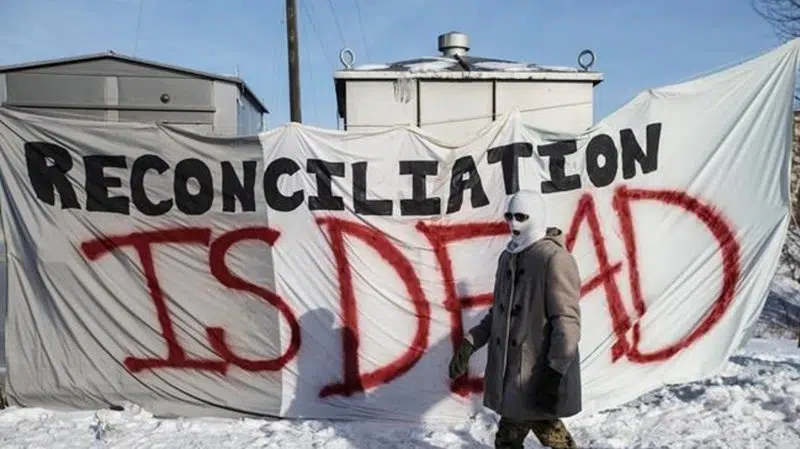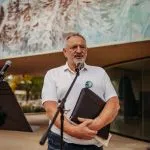
The latest on protests across Canada in support of anti-pipeline demonstrators
Here is the latest news on protests across Canada over a natural gas pipeline project in British Columbia:
Protesters blocked traffic at a major intersection in Vancouver after the region’s public transit operator obtained a court injunction preventing them from obstructing its SkyTrain facilities.
The demonstrators had planned to gather at the Broadway-Commercial station but instead stood in the centre of nearby Broadway and Clark Drive during rush hour.
The protesters then marched north on Clark Drive before turning east on 1st Avenue later in the evening.


